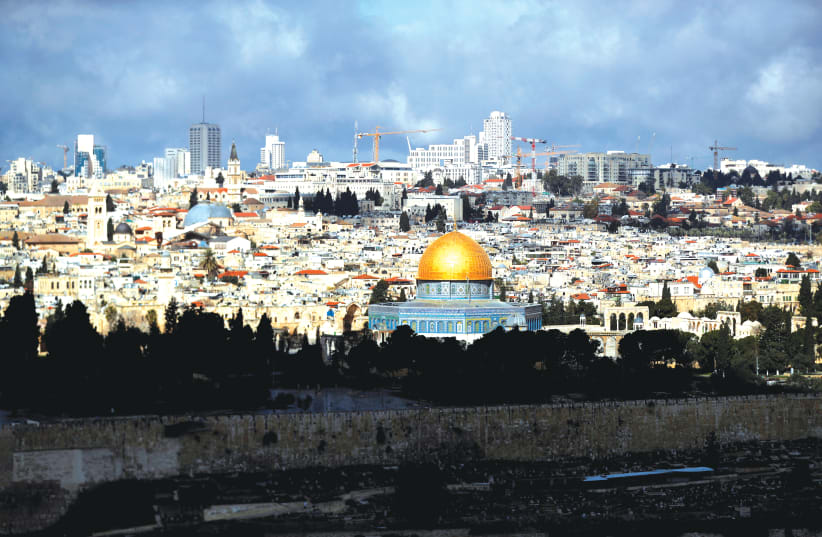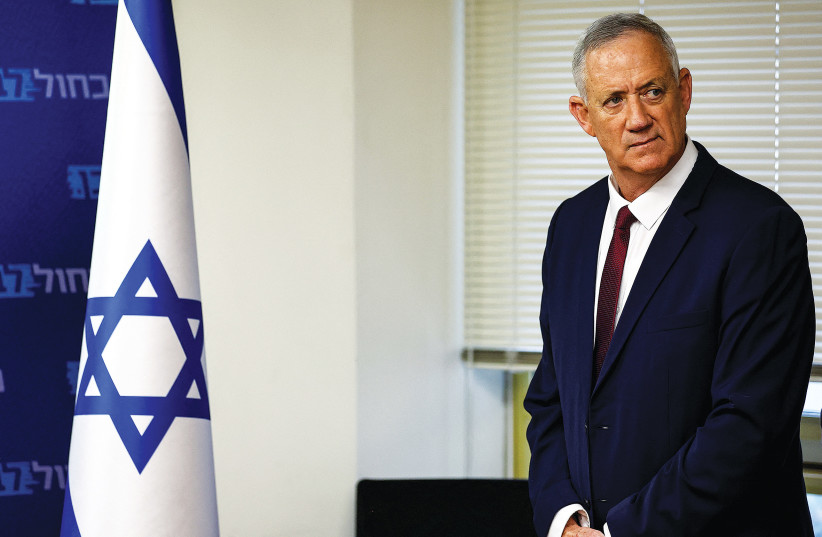Jerusalem is the united capital of Israel, Defense Minister Benny Gantz said Monday morning as he pushed back at former prime minister Benjamin Netanyahu, who attacked him on social media over the past day for his previously announced stance.
“Jerusalem is the united capital of the State of Israel – so it has been, and so it will be,” Gantz told Radio 103 FM.
"Jerusalem is the united capital of the state of Israel, so it has been and so it will be."
Israeli Defense Minister Benny Gantz
Gantz, Netanyahu, a Palestinian capital in Jerusalem and the Trump peace plan
Netanyahu on Sunday tweeted the headline of an interview Gantz gave to a Saudi paper in 2020 in which he said there was room for a Palestinian capital in a united Jerusalem.
“The answer is no,” Netanyahu tweeted. The issue of a united Jerusalem is one he often campaigns on and has in the past warned that his opposition would give it away to the Palestinians. He famously did so when he campaigned against former Labor Party leader Shimon Peres.
Gantz clarified in his radio interview on Monday that he had made those comments around the time former US president Donald Trump had unveiled his peace plan, which called for a Palestinian capital in Palestinian neighborhoods of Jerusalem that were on the opposite side of the security barrier. Netanyahu also supported that plan.
Trump’s plan also called for a two-state resolution to the conflict. Gantz in his public comments since then has spoken of a resolution that involves two entities.
Gantz told the radio station he did not believe it was possible “to get to a permanent agreement [with the Palestinians] in the coming years.”
What needs to happen instead is to reduce the points of conflict and strengthen Palestinian self-governance over their own affairs, particularly their internal security, Gantz said.
It’s important to prevent the creation of a binational state, “which no one wants,” he said.
With respect to a Palestinian foothold in Jerusalem, Gantz said there are people who say there are “civilian villages that Palestinians call Jerusalem, which is not in the metropolitan envelope of Jerusalem, and they can be defined as their capital.”
But he reiterated that Jerusalem is Israel’s united capital.
Gantz also clarified that he would not sit in a government in which Netanyahu was a prime minister or a minister.

